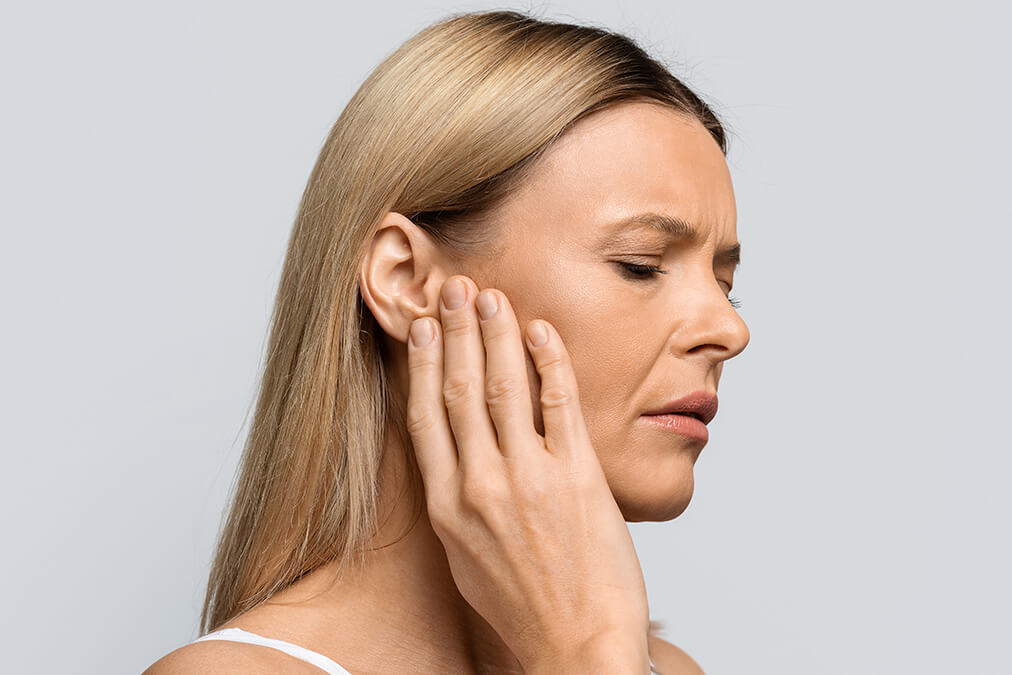Tinnitus Treatment
THE EAR INSTITUTE OF TEXAS
Tinnitus is an incredibly common condition affecting over 45 million Americans, yet very few receive treatment for the persistent condition. If you have ever been in a loud environment then stepped back into a quiet one, you might have noticed a ringing in your ears.
Although this sound goes away for most people, someone with tinnitus will not be able to escape the persistent sound for an extended period of time. The sound of tinnitus is not always a “ringing,” either. Some people register tinnitus as buzzing, whistling, clicking, hissing, or roaring. In any case, the effects of chronic tinnitus can bring along other negative effects for sleep and mental health.

Overview
Treatment for Tinnitus
Although there is no known permanent cure for tinnitus, treatment options are increasing rapidly. In the past, some people have resorted to playing white noise in their bedrooms while they fall asleep, attempting to mask the sound of tinnitus.
Although this approach can be effective in the short term, it is not a durable long-term solution, and it can pose problems in other areas, such as causing restless sleep or disturbing others. Hearing aids have made remarkable advancements in tinnitus treatment, offered alongside assistance for hearing loss.

One of the ways that hearing aids can treat tinnitus is to emit a sound that mimics the sound of tinnitus. When that sound wave is out of “phase” with the tone of tinnitus, it can, in effect, cancel out the sound of tinnitus. Other treatments for tinnitus include guided retraining therapy. In this process, an audiologist or hearing health practitioner trains the ear to recognize the sound of tinnitus as if it were a natural sound.
Quiet white noise is played to help the auditory system detect and process the sound of tinnitus with the same ability to tune it out that might occur with everyday environmental sounds.


